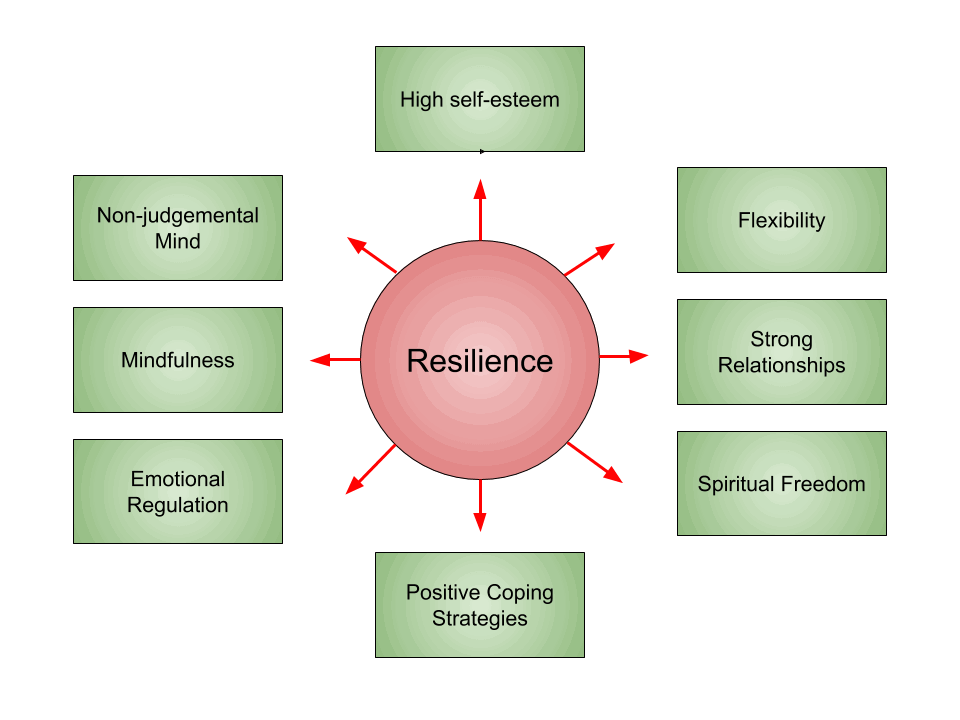Emotional resilience is the ability to adapt to stressful situations and bounce back from adversity. It’s a crucial skill that can be developed through intentional practices and mindset shifts. This guide explores practical strategies, real-life examples, and expert insights to help you cultivate emotional resilience.
What Is Emotional Resilience?
Emotional resilience refers to the capacity to maintain mental well-being and recover quickly from challenges such as stress, trauma, or adversity. It’s not about avoiding difficulties but about developing the strength to face them effectively.
Why Is Emotional Resilience Important?
Building emotional resilience offers numerous benefits:
- Enhanced Stress Management: Resilient individuals can cope better with stress and anxiety.
- Improved Mental Health: Reduces the risk of depression and other mental health issues.
- Better Relationships: Promotes healthier interpersonal connections through effective communication and empathy.
- Increased Adaptability: Helps in adjusting to life changes and uncertainties.
How to Build Emotional Resilience
1. Develop Self-Awareness
Understanding your emotions is the first step toward resilience. Regular self-reflection through journaling or mindfulness practices can help you identify emotional triggers and patterns. This awareness allows you to respond thoughtfully rather than react impulsively.
2. Cultivate a Positive Mindset
Adopting a positive outlook doesn’t mean ignoring challenges but viewing them as opportunities for growth. Practicing gratitude and focusing on strengths can shift your perspective, making it easier to navigate difficulties.
3. Build Strong Social Connections
Having a support system is vital. Engage in meaningful relationships with friends, family, or support groups. Sharing experiences and seeking support can provide comfort and different perspectives during tough times.
4. Practice Self-Care
Taking care of your physical health supports emotional well-being. Regular exercise, a balanced diet, adequate sleep, and relaxation techniques like deep breathing or yoga can enhance your resilience.
5. Learn from Experience
Reflect on past challenges and identify what helped you overcome them. Recognizing your coping strategies and strengths can empower you to handle future adversities more effectively.
6. Embrace Flexibility
Life is unpredictable. Being open to change and adaptable in your approach allows you to navigate uncertainties with confidence. Flexibility fosters resilience by reducing the impact of unexpected events.
7. Set Realistic Goals
Establishing achievable goals provides direction and purpose. Breaking larger objectives into smaller, manageable tasks can prevent feelings of overwhelm and build a sense of accomplishment.
8. Develop Problem-Solving Skills
Enhance your ability to analyze situations and find effective solutions. Problem-solving skills enable you to approach challenges proactively, reducing stress and increasing resilience.
9. Seek Professional Help When Needed
If you’re struggling to cope, seeking help from a mental health professional is a sign of strength, not weakness. Therapy or counseling can provide tools and support to build resilience.
10. Practice Mindfulness
Mindfulness involves staying present and fully engaging with the current moment. This practice can reduce stress, enhance emotional regulation, and improve overall mental health.
Real-Life Examples
- Sarah’s Story: After losing her job, Sarah felt overwhelmed. She started journaling her thoughts and emotions, which helped her process her feelings and identify new career opportunities. Her self-awareness and proactive approach led her to a fulfilling new role.
- John’s Journey: John faced a serious illness and relied on his close-knit family for support. Their encouragement and shared experiences strengthened his emotional resilience, enabling him to recover and appreciate life more deeply.
Frequently Asked Questions (FAQs)
- What is emotional resilience? Emotional resilience is the ability to adapt to stressful situations and bounce back from adversity. It’s about developing coping strategies to maintain mental well-being during challenges.
- Can emotional resilience be developed? Yes, emotional resilience can be cultivated through practices like self-awareness, positive thinking, building social connections, and self-care.
- Why is emotional resilience important? It helps individuals manage stress, improve mental health, maintain relationships, and adapt to life’s changes effectively.
- How does mindfulness contribute to emotional resilience? Mindfulness enhances emotional regulation, reduces stress, and promotes a present-focused mindset, all of which bolster resilience.
- What role do social connections play in resilience? Strong relationships provide support, perspective, and comfort during tough times, which are essential for building resilience.
- Can past experiences influence emotional resilience? Yes, reflecting on and learning from past challenges can strengthen coping strategies and enhance resilience.
- Is there a link between emotional resilience and physical health? Absolutely, practices like regular exercise and adequate sleep improve both physical and emotional well-being.
- How can I stay resilient during a crisis? Focus on self-care, maintain routines, seek support, and view challenges as opportunities for growth to stay resilient.
- Are there resources to help build resilience? Yes, books, online courses, therapy, and support groups offer valuable tools and guidance for developing resilience.
- How long does it take to build emotional resilience? Building resilience is a continuous process that varies for each individual, depending on personal experiences and efforts.
Conclusion
Building emotional resilience is an ongoing journey that involves intentional practices, mindset shifts, and seeking support when needed. By developing self-awareness, maintaining a positive outlook, fostering strong relationships, and practicing self-care, you can enhance your ability to navigate life’s challenges effectively. Remember, resilience is not about avoiding difficulties but about developing the strength to face them with confidence and adaptability.
